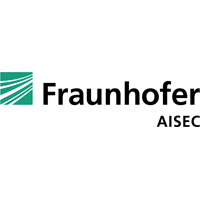4,000+
Attendees
250
Speakers
250
Exhibitors
100
Start-Ups
2
Days
THE WORLD OF IDENTITY UNDER ONE ROOF
IDENTITY WEEK is the world’s largest and most important identity event, returning to Amsterdam in 2026!
The Netherlands is one of the front-runners in the identity industry within the European Union and is widely regarded to be among the world’s leading innovators, with strong technological capabilities and performance.
IDENTITY WEEK is a conference and exhibition bringing together the brightest minds in the identity sector to promote innovation, new thinking, and more effective identity solutions.
THE WORLD OF IDENTITY UNDER ONE ROOF
For 18 years, Identity Week Europe has been the unmissable event of the year, connecting thousands of Identity professionals from across finance, government, retail, ecommerce, healthcare, travel and social media. Identity Week Europe is the #1 exhibition to find solutions for secure credentials, biometrics, IAM, authentication, verification, border control, fraud, and more.

A global 2-day conference playing host to more than 250 speakers as we address the latest threats facing Identity, as well as cutting-edge tech advancements & opportunities.

A multi-brand exhibition hosting over 250 of the world's leading identity players showcasing cutting-edge solutions and featuring the most innovative start-ups across the region.

In order to build those all-important business relationships you need to go where your customers are - Exhibitions & conferences. Join over 4,000 of your peers next June.
2026 Sponsors, Exhibitors, and Start-ups
2026 Speakers Include
CONFERENCE THEMES
WHO ATTENDS IDENTITY WEEK EUROPE?














Stay Up-to-Date
Join our mailing list to receive exclusive content and offers.
By submitting, you agree to receive email communications from Terrapinn, including upcoming promotions and discounted tickets and news.
Explore the latest industry news from IdentityWeek.net
GET INVOLVED AT IDENTITY WEEK






























































































































































